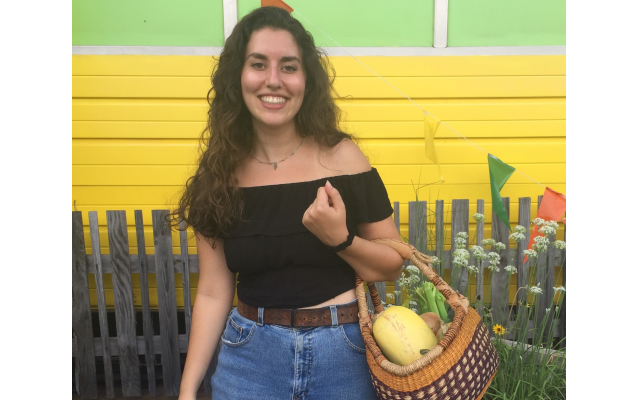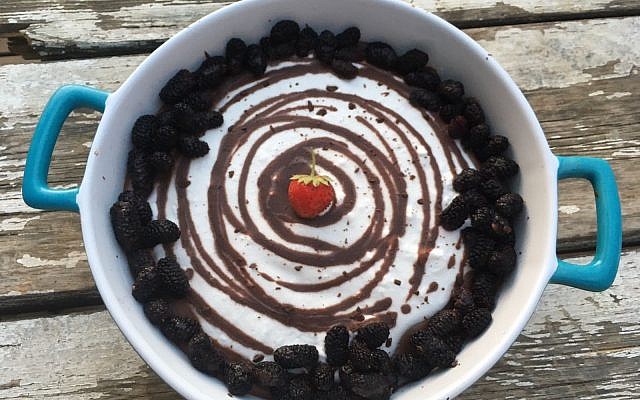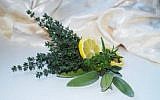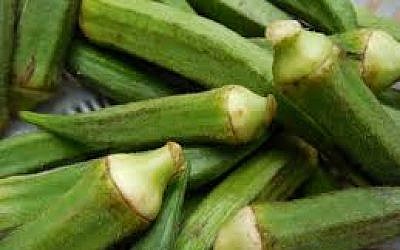Sephardic Vegan Cooks with Passion and Skill
Vegan food is delicious, inexpensive and easy to make says local foodie and chef Maya Ferguson.
After 37 years with the Atlanta Journal-Constitution and now with the AJT, , Jaffe’s focus is lifestyle, art, dining, fashion, and community events with emphasis on Jewish movers and shakers.

Wise beyond her 20 years, Maya Ferguson grew up surrounded by family entrenched in Egyptian delicacies. After a childhood in East Atlanta and bat mitzvah at Congregation Or VeShalom, Ferguson headed off to the University of Georgia to study ecology and anthropology with an eye on a master’s in public health and a career in disease ecology/ environmental public health.
“I plan to have a strong platform to share my vegan lifestyle through restaurant consulting and cookbook writing,” she said. “Once people see that vegan food is not just tofu and beans, they realize that it’s delicious and get past the initial shock of veganism. I cook food that is simple, nutritious and inexpensive.”
Learn more about Maya’s use of herbs like sumac, experience in Israeli farming and compassion for the planet.
Jaffe: How did you get enthralled with the love of food?
Ferguson: My mom is a great cook, so I grew up in the kitchen. At 10, I became obsessed with baking and cooking. I was interested in all parts of food: gardening; learning about edible plants; reading about different food cultures and traditions; and the food industry. As I got older, I became interested in the environmental impact of food production. Soon, I was cooking meals for family and friends.
Jaffe: What did you learn in Israel?
Ferguson: I worked with my sister on an organic farm in north Israel, surrounded by others who ate well and had access to what grew on the farm, like fresh plums, figs, passion fruit, berries, olives and sprouts. I had an incredible time exploring Israel and eating amazing vegan food. Israel actually has one of the world’s highest percentages of vegans per capita in the world. Tel Aviv has a thriving vegan food scene. I planned my time in Tel Aviv around eating at vegan restaurants. So many traditional Jewish recipes from all over the world are already vegan because they tend to omit milk and meat.

Jaffe: Outline a vegan lifestyle.
Ferguson: We abstain from the use of all animal products. Vegans do not eat any animal products, including meat, fish, dairy, eggs or honey. We do not wear clothing with animal skin, fur or hair. People choose veganism to reduce the suffering of animals, benefit one’s health and to make a smaller environmental impact. There are also a lot of misconceptions about vegan diets like, “Where do you get protein?” “Don’t you need dairy for calcium?” In fact, many vegetables, grains, seeds and nuts have just as much protein as the same serving size of meat.
Greens typically have more calcium than dairy products.
A vegan diet has a diminished impact on greenhouse gas emissions, land usage, deforestation, water usage and pollution. Animals living on these farms almost always have miserable lives. A lot of people buy grass-fed, free range or kosher meats thinking that they are more ethical. But after researching the operation of these large-scale farms and slaughterhouses, we see that these animals are living a life of suffering and enduring a painful death.
Jaffe: What do you see as food trends?
Ferguson: There is always some new, trendy fad diet that is often restrictive and unrealistic for anyone to sustain. I focus on eating a mostly whole foods, plant-based diet that is actually realistic to maintain, unlike trendy low carb, low fat, paleo, superfood, fully raw or keto diets. I encourage people to do their own research. There are many good documentaries that explore these ideas including “What the Health,” “Cowspiracy,” “Forks Over Knives,” “Fast Food Nation,” and “Food, Inc.,” and studies showing the benefits of being vegan.
Jaffe: How do you use spices and herbs?
Ferguson: My current favorite seasoning is sumac, which I discovered in Israel. Sumac is sour but also has a more complex, warm taste. I cook a lot of Egyptian food and have found that sumac is the perfect addition to tomato-based stews and salads. I also add something fresh to dishes after I cook them – a squeeze of lemon or lime or fresh chopped herbs like cilantro, parsley or dill.

Jaffe: How would you describe your own talent?
Ferguson: My foundation of skills in the kitchen allows me to be more inventive when coming up with vegan recipes. One of my favorite parts about vegan cooking is that there is much left to be discovered. There are many versatile ingredients like cassava flour, cashews, wild mushrooms, seaweed and nutritional yeast. With baking, most recipes use eggs; vegans can experiment by using substitutes like flax or chia-based “eggs,” applesauce, banana or store-bought egg replacer. These substitutes are just as delicious and cause less harm than using eggs.
Maya’s Yummy Recipes:
Cashew Mac and “Cheeze”
4 cups water
1 heaping cup raw cashews
1/3 cup cassava flour or tapioca starch
1/3 cup (or to taste) nutritional yeast flakes
2 tablespoons (or to taste) lemon juice
Blend all the ingredients until completely smooth. If using a weaker blender, strain after blending to obtain a smoother sauce. Place the mixture into a saucepan and cook on medium heat. Stir until you reach desired thickness. Adjust seasoning accordingly and stir into 1 lb. of cooked pasta.

Easy Coconut Lentil Soup
4 cups water
1 cup red lentils
2 tablespoons coconut oil
2 teaspoons cumin seeds
2 teaspoons mustard seeds
1 teaspoon ground turmeric
1 tablespoon garam masala
½ cup finely diced onion
1 can coconut milk
Place a pot on medium heat and add the coconut oil. Once melted, add the mustard and cumin seeds and cook until toasted – just until they start to pop and smell fragrant. Add turmeric, garam masala and onion, cooking until the onion becomes translucent. Add the coconut milk and simmer for a few minutes until mixture starts to thicken slightly. Next add the water and lentils and boil for about 30 minutes or until the lentils cook. Season with salt to taste and serve with a garnish of chopped cilantro or scallions. Add veggies like chopped carrots or sweet potatoes to pot when you add the onion.
Egyptian Stewed Okra (Bamia)
¼ cup olive oil
1 large white onion, sliced into thin strips
3 cloves garlic, finely diced
1 tablespoon ground cumin
2 large tomatoes, diced
1 ½ pounds of okra
¼ cup tomato paste
2 cups water
Add the olive oil and onion to pan and cook on medium-high heat until the onions are golden brown. Add the garlic and cumin and cook for an additional 2 minutes.
Next, add the chopped tomatoes and cook, lowering the heat to medium-low. Stir often and continue to cook until the tomatoes soften, which will take about 10 minutes. Stir in tomato paste, water and mix until the sauce is well-combined.
Next, add the okra and simmer until it is cooked but still firm. This will take between 20 and 30 minutes. Salt and pepper to taste. Serve over rice with a squeeze of lemon and sprinkle of sumac.



comments